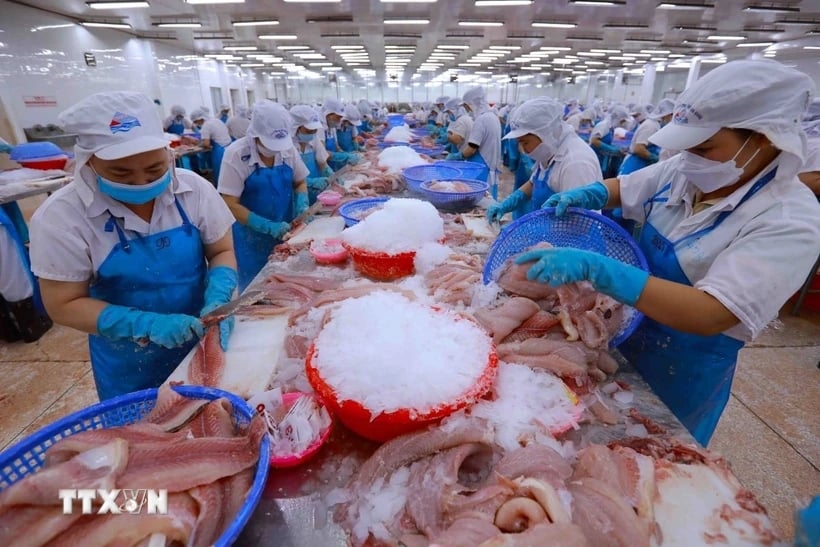
Vietnam's economy is recovering strongly, despite the uncertain global context.
Positive assessments from international organizations such as the International Monetary Fund (IMF), the Organization for Economic Cooperation and Development (OECD), the World Economic Forum (WEF), and in-depth analysis from UOB Bank (Singapore), all show growing confidence in the long-term potential of the Vietnamese economy.
However, to maintain sustainable growth momentum, Vietnam needs to continue to proactively adapt and promote reforms in the context of a volatile external environment.
Positive growth and international attention
Vietnam started 2025 with a Gross Domestic Product (GDP) growth of 6.93% in the first quarter of 2025, following an impressive recovery in 2024 with a growth rate of 7.09%.
These figures partly reflect Vietnam's flexibility in economic management and adaptability to external challenges.
At a meeting with Prime Minister Pham Minh Chinh on the sidelines of the World Economic Forum (WEF) Tianjin 2025, WEF Interim President Peter Brabeck-Letmathe affirmed that Vietnam is demonstrating an increasingly clear role in the global economic network.
According to Mr. Brabeck-Letmathe, flexible governance and autonomous foreign policy have created strong attraction for the international business community.
In addition, the memorandum of understanding (MOU) between Vietnam and WEF, signed in Tianjin in 2023, has contributed to connecting Vietnam with many global corporations, expanding opportunities to attract high-quality foreign investment.
WEF President Borge Brende answers questions from VNA reporters at WEF headquarters. (Photo: VNA)
Sharing the same view, WEF Executive Chairman Borge Brende highly appreciated the double-digit growth target that Vietnam is aiming for in the next decade, considering this a feasible strategy if Vietnam can maintain its current momentum.
Meanwhile, the Organization for Economic Cooperation and Development (OECD), in its Vietnam Economic Report 2025 published in mid-June 2025, stated that Vietnam has achieved important long-term progress.
OECD Chief Economist Alvaro Pereira expressed confidence that Vietnam is fully capable of becoming a high-income country by 2045 – and could even achieve it sooner if it continues to maintain reform and integration efforts.
From the private sector perspective, UOB Bank also recorded clear signs of recovery in the Vietnamese economy in the second quarter of 2025.
According to the latest forecast, GDP in the second quarter of 2025 is estimated to reach 6.1%, thanks to the US tax deferral policy and the initiative of the Vietnamese government and businesses.
Along with that, UOB's survey shows that 60% of Vietnamese businesses are still optimistic about growth prospects next year and nearly half have plans to expand into international markets.
External risks remain lurking.
Although growth signals are positive, Vietnam's economy is still facing many challenges, especially from the external environment.
The International Monetary Fund (IMF) warned that Vietnam's growth prospects still depend heavily on the results of trade negotiations, while global uncertainty remains high.
Mr. Paulo Medas, Head of the IMF Mission in Vietnam, noted that in terms of the external environment, escalating trade tensions will create challenges for export businesses.
Mr. Paulo Medas, Head of the International Monetary Fund (IMF) Vietnam Macroeconomic Consultation and Monitoring Mission. (Photo: Doan Hung/VNA)
Domestically, financial pressures may also increase as credit conditions tighten and corporate debt levels remain high.
Notably, UOB and IMF both mentioned the impact of US tariff policy.
The US announcement of imposing a 46% reciprocal tax on a number of Vietnamese export products in early April 2025 created concerns in the global market. However, the US later postponed the implementation for 90 days to allow time for negotiations.
According to UOB, Vietnam’s exports are heavily dependent on key industries such as electronics, furniture, textiles and footwear, which account for about 80% of exports to the US. Therefore, any changes in trade policy could have a significant impact.
Proactive adaptation and reform are the foundation
In the context of many risks, international organizations have recognized Vietnam's efforts in maintaining macroeconomic stability and promoting reforms. The IMF believes that fiscal policy should play a leading role in economic management, especially when Vietnam's public debt level remains low. Along with that, accelerating public investment and expanding the social safety net will help create a foundation to support growth in the short term.
On monetary policy, the IMF recommends focusing on stabilizing inflation expectations and allowing for greater exchange rate flexibility to accommodate external shocks. At the same time, modernizing the monetary framework – such as replacing credit growth ceilings with prudential policy frameworks – would contribute to improving operational efficiency.
The OECD stressed the importance of institutional reform, including broadening the tax base, improving the social welfare system and promoting renewable energy. In particular, attracting high-quality FDI needs to go hand in hand with improving internal capacity, protecting intellectual property rights and developing human resources.
On the business side, UOB's survey showed that about 80% of businesses with export activities have proactively responded to tariff risks with many solutions: from diversifying supply chains, increasing localization to investing in digitalization and sustainable development.
In particular, many businesses are targeting the Association of Southeast Asian Nations (ASEAN) and European markets as potential destinations to reduce dependence on some traditional markets.
Despite short-term difficulties, the medium- and long-term prospects of Vietnam’s economy are still positively assessed by international organizations. The IMF and OECD both believe that with a solid macroeconomic foundation, a clear reform orientation and proactiveness from the business sector, Vietnam can completely maintain stable growth momentum and improve its position in the global value chain.
UOB forecasts Vietnam’s GDP growth to reach 6% in 2025 and increase to 6.3% in 2026. In the context of the global economic restructuring, if Vietnam maintains its determination to reform, improve productivity and enhance competitiveness, it can welcome new opportunities to break through.
Source: https://www.vietnamplus.vn/chuyen-gia-quoc-te-kinh-te-viet-nam-phuc-hoi-vung-vang-giua-thach-thuc-toan-cau-post1047253.vnp


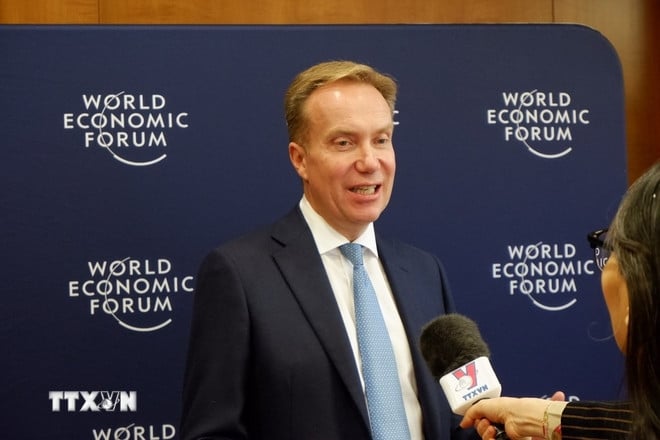
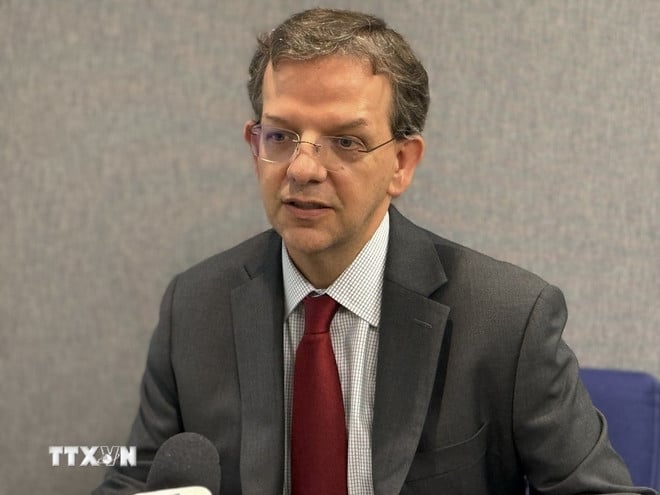








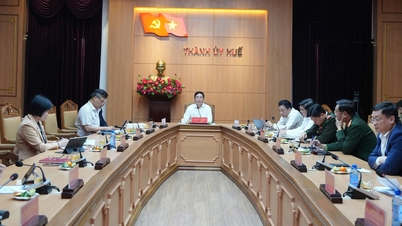










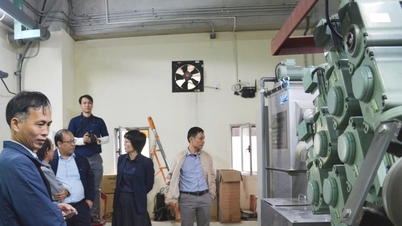













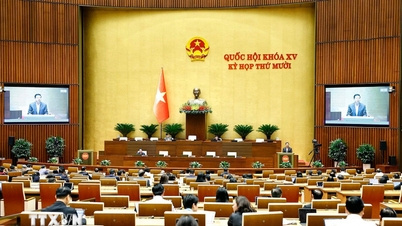


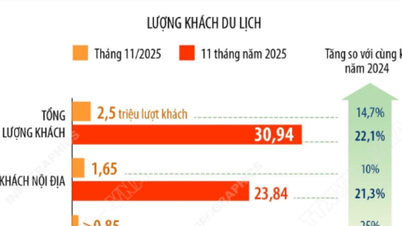
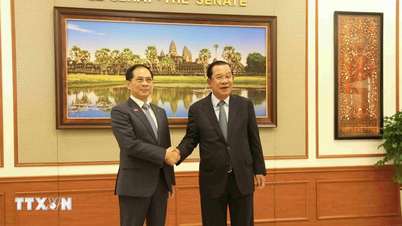






































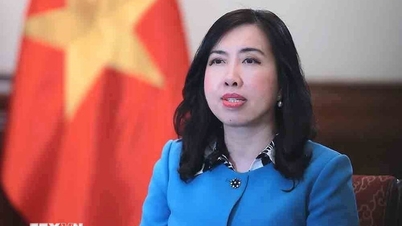










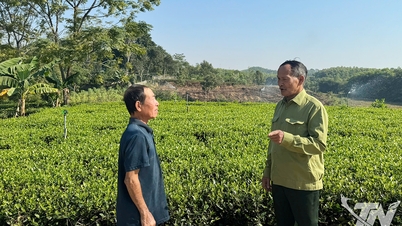




















Comment (0)